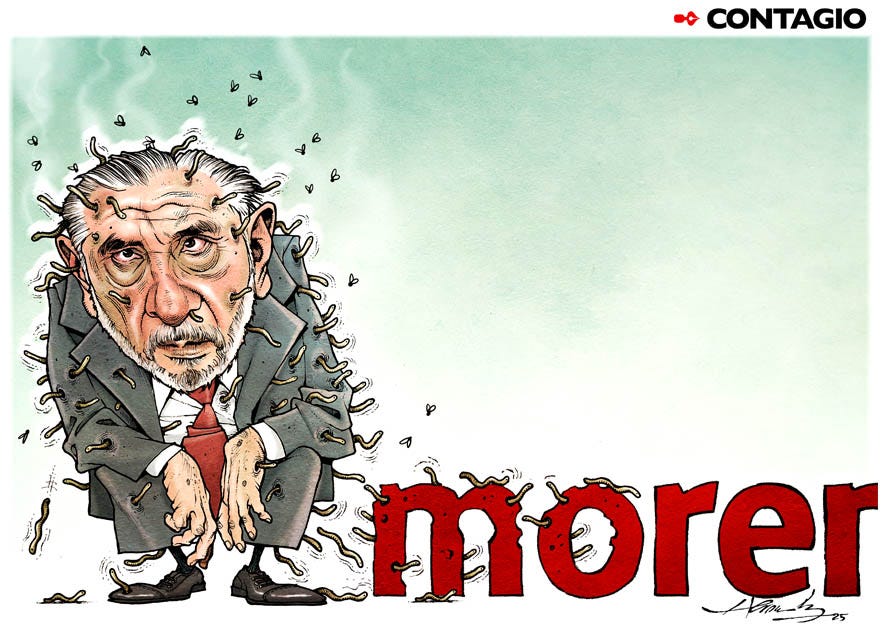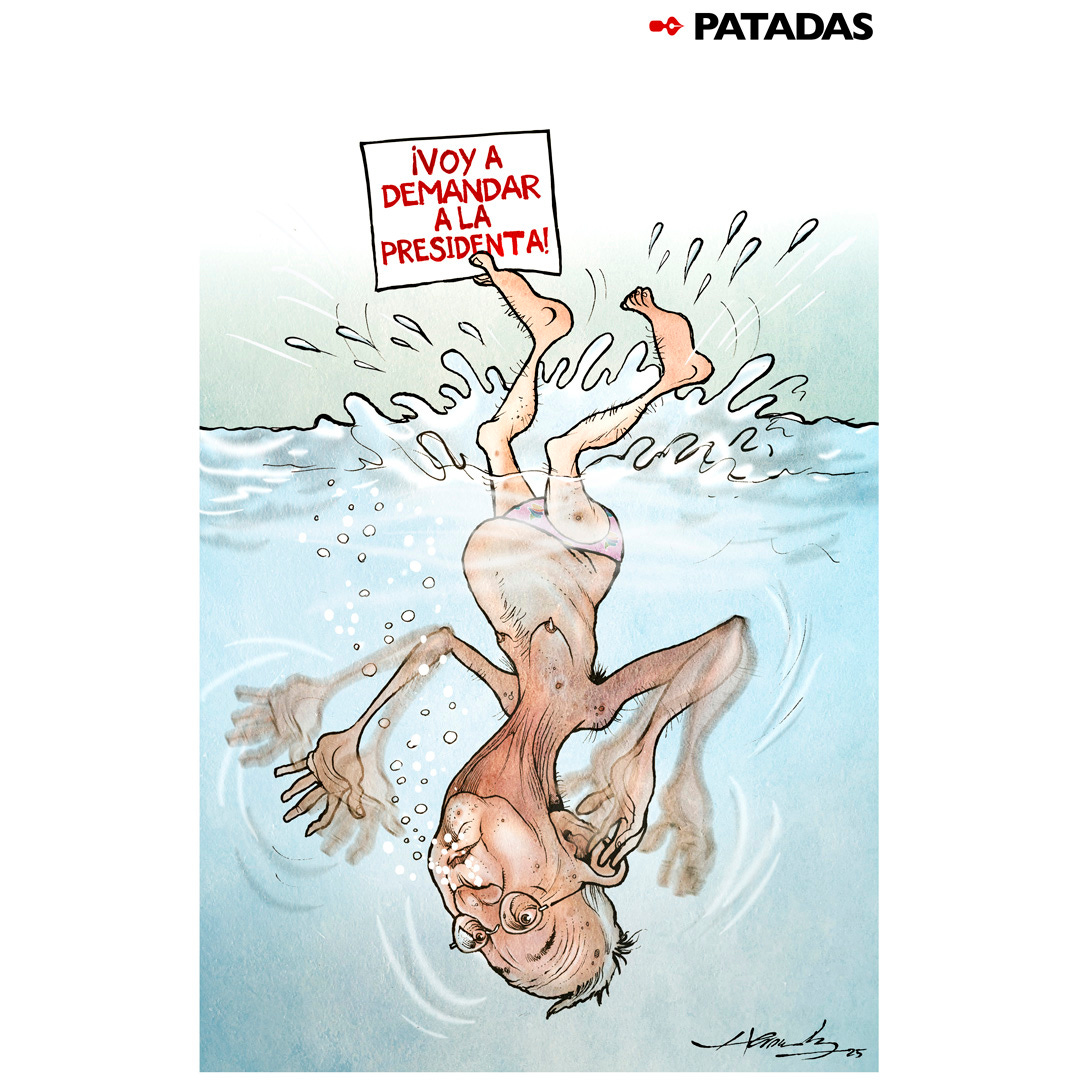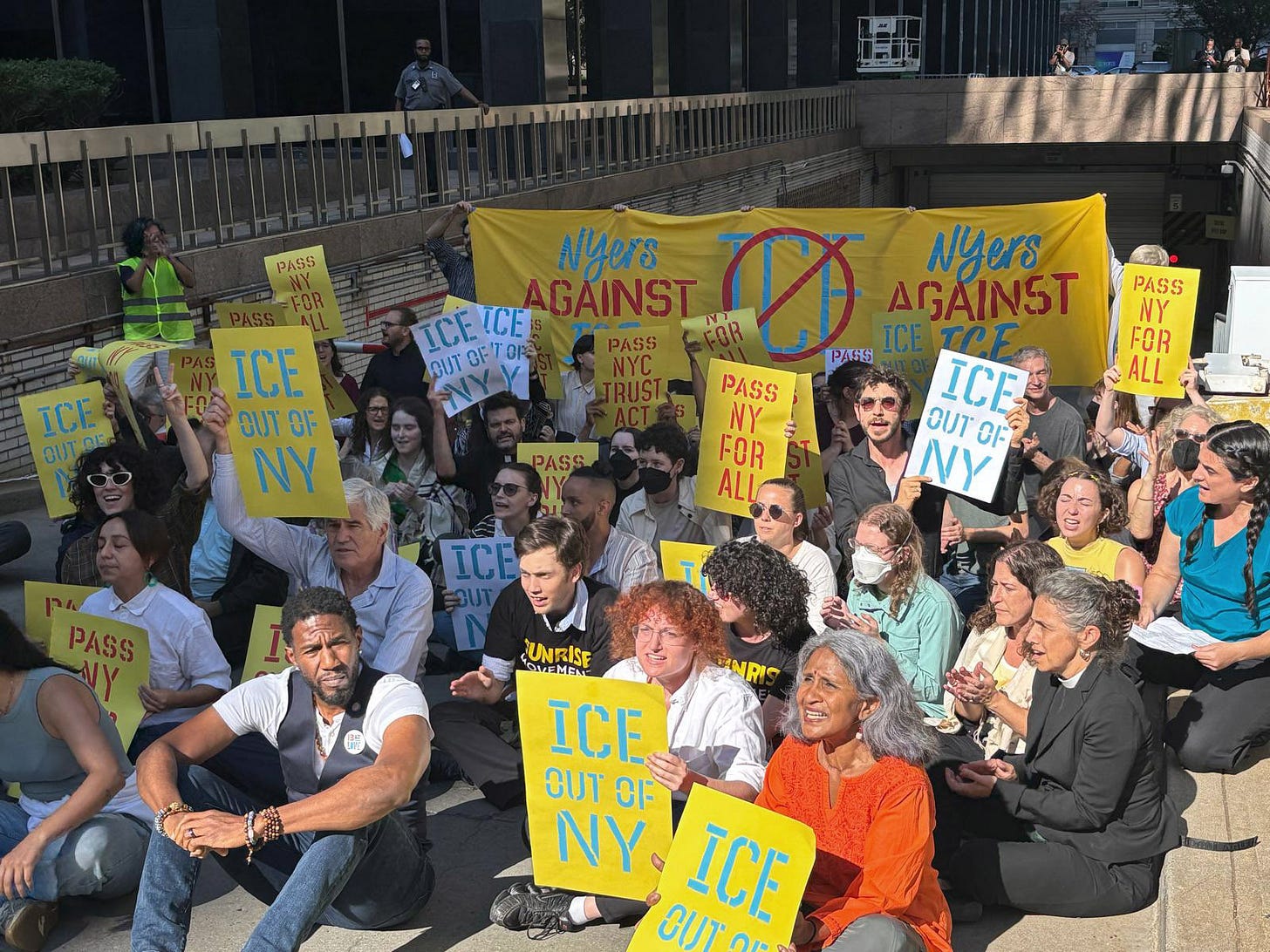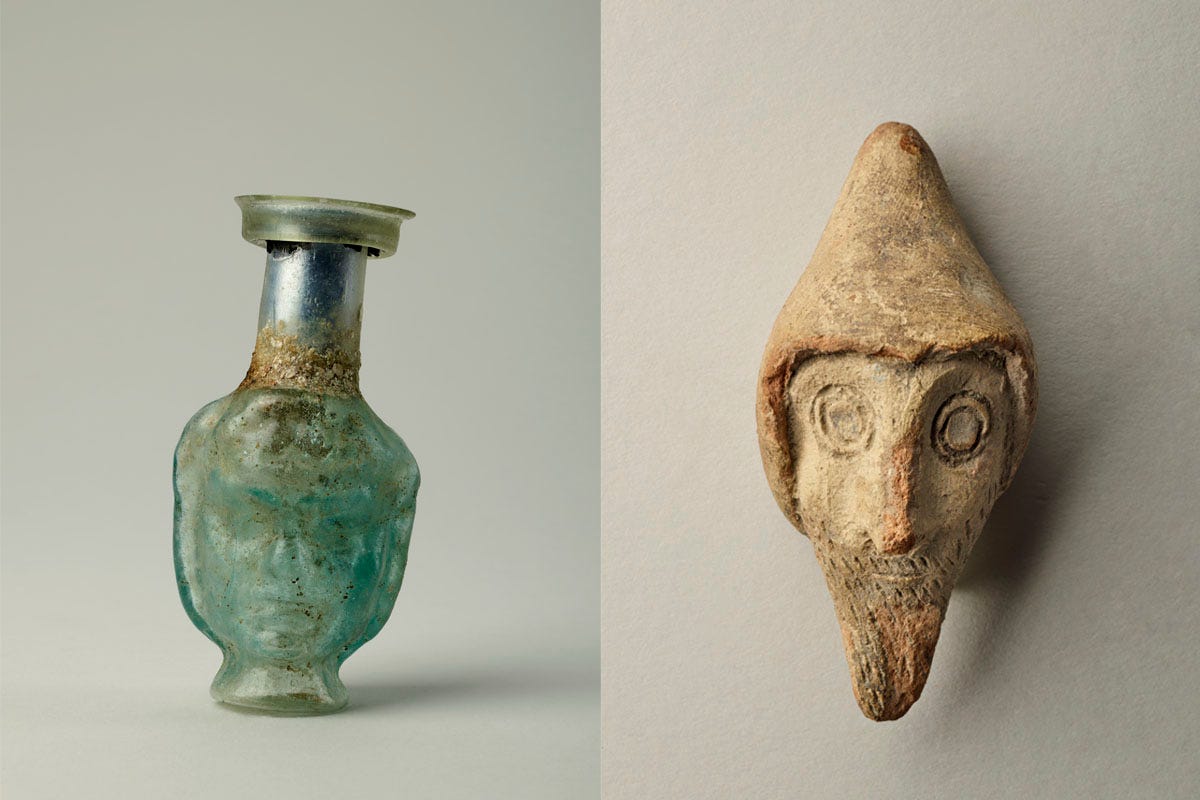The President and corruption
Also: 11 years since Ayotzinapa, “the wound grows deeper.” Resistance is growing, both inside and outside the U.S. Over 2,000 musicians gather in Mexico City's Zócalo. Treasures saved from Gaza.
Lea La Jornada Internacional en español aquí.
Sweeping from the Top Down : An End to the Protection of Corrupt Officials?
“There is no room for corruption,” President Claudia Sheinbaum said again this week, and the Secretary of Interior Rosa Icela Rodríguez added “We have no mafia ties or pacts with criminals.” The last few days have revealed again the challenges Sheinbaum’s administration faces: a former state Public Security Secretary who fled to Paraguay has been returned to Mexico to face charges; a vice admiral and others are being prosecuted for fuel theft; and investigations are underway into some of the highest-ranking politicians in the ruling party. At the same time, Sheinbaum is confronting the third-richest man in the country head-on over tax evasion and other crimes.
Hernán Bermúdez Requena, former Secretary of Public Security for the state of Tabasco and ex-member of the Morena party, was expelled from Paraguay to Mexico in September to face charges as the leader of La Barredora, a state-level criminal gang. According to the Special Prosecutor’s Office for Organized Crime, he directed Public Security officers to “provide protection during the transport and delivery of drugs at distribution points” and to escort tanker trucks used by organized crime to distribute fuel stolen from pipelines belonging to Petróleos Mexicanos (Pemex).
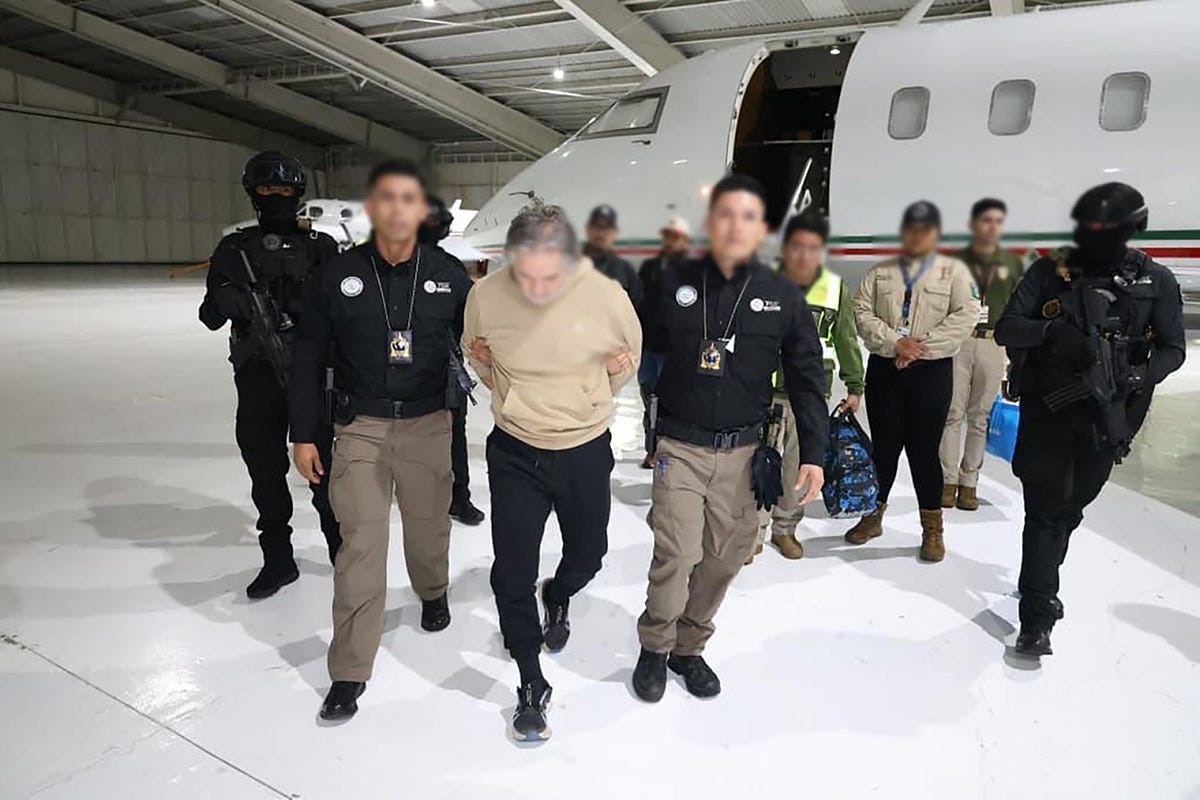
“If the case of Bermúdez Requena serves as a reminder of the immense damage that corruption by a public official can cause—regardless of the political party in power—his capture and arrest sends a message of zero tolerance for impunity by the federal government and the Attorney General’s Office (FGR),” states La Jornada in an editorial. “Now that he is back in Mexico, Bermúdez Requena must answer to justice for charges including criminal association, extortion, and kidnapping.”
Bermúdez’s arrest has brought renewed scrutiny to his former boss, the then-governor of Tabasco, Adán Augusto López, now the leader of Morena’s Senate delegation. López has claimed he was unaware of the corruption committed by his former subordinate. However, with attention now focused on him, it was revealed that between 2023 and 2024 he received income exceeding 78 million pesos—a sum far greater than his official salary and one he had not previously disclosed.
“The news, and Adán Augusto’s statements, provided even more material for speculation and, above all, for forensic accounting and questions about the seemingly favorable amount of taxes paid compared to the income he received,” writes Julio Hernández in his column, noting that López is seeking to become Morena’s presidential candidate.
All of these developments come just weeks after nine members of the Navy, a former federal judge, a former customs official, and several civilians were charged for participating in a corruption network that enabled 32 ships to smuggle millions of liters of fuel from the United States into Mexico. The Special Prosecutor’s Office for Organized Crime accuses Rear Admiral Fernando Farías Laguna of being part of the scheme, along with his brother, Vice Admiral Manuel Roberto Farías, and other senior officers of the Mexican Navy (SEMAR).
These stories might sound like Netflix scripts—but it’s the less visible actions against tax evasion that may yield the biggest benefits for Sheinbaum’s administration. In Mexico, so-called “factureras”—shell companies that issue invoices for fake goods or services to evade taxes—are estimated to move around 3.1 trillion pesos, with a direct impact of 1.41 trillion pesos in lost public revenue. The most prominent example is Grupo Salinas, owned by Ricardo Salinas Pliego, which, according to federal government estimates, owes 74 billion pesos in taxes.
President Sheinbaum insists there will be no behind-closed-doors negotiations with Grupo Salinas over Salinas Pliego’s tax debts: “Paying taxes is a matter of law, and Article 28 of the Constitution prohibits tax forgiveness and exemptions.” So far, Sheinbaum continues to pursue payment.
The Quote:
A politician who is poor is a poor politician.
-Carlos Hank González (1927–2001), former governor of the State of Mexico and businessman, a powerful politician from the PRI.
In Case You Missed It
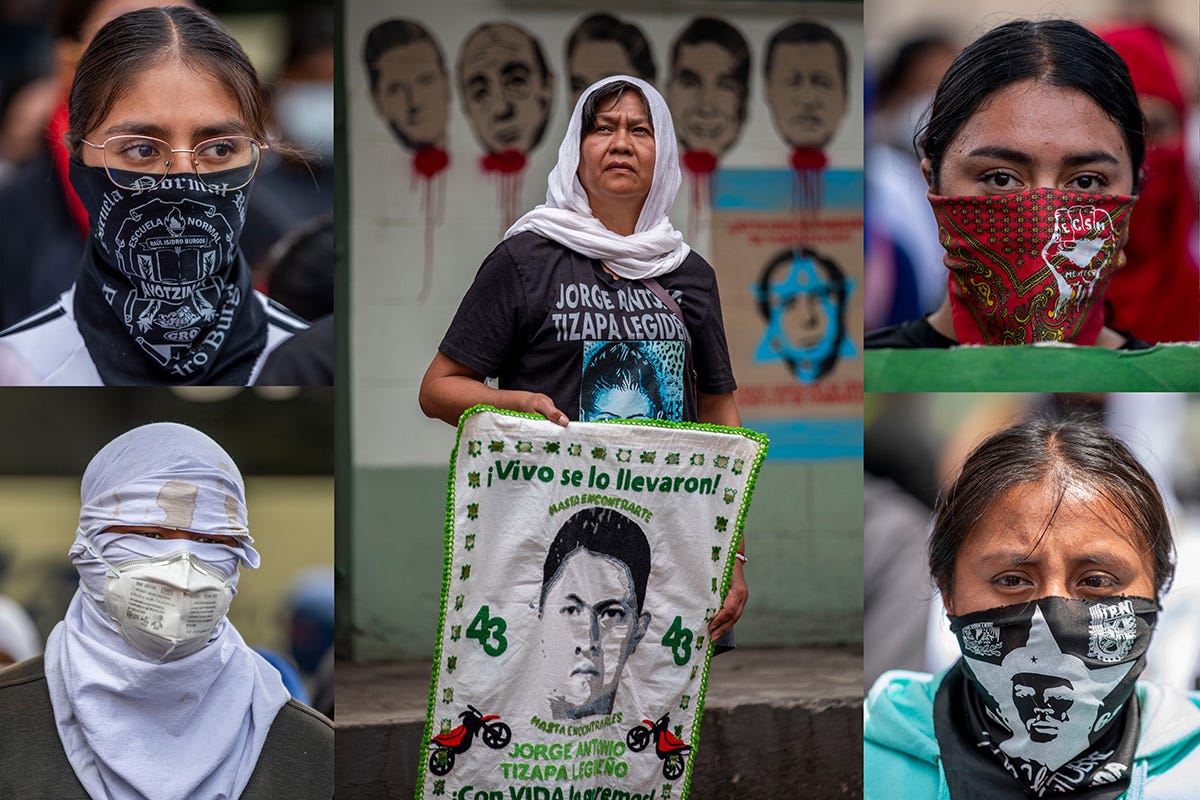
◻️ 11 years since Ayotzinapa: “The wound grows deeper.” One year into Sheinbaum’s administration, the federal government has sought to take a new approach to the Ayotzinapa case and strengthen investigations against several involved parties. However, the families of the 43 missing students say that so far this has contributed little to solving the case. “They won’t deceive us again,” the families warned during the march marking the eleventh anniversary of the disappearance of the 43. “We won’t back down until the Army hands over the documents in its files and accounts for the disappearance of our children.”
◻️ Achievements in the President’s first year. Claudia Sheinbaum highlights the following achievements: the repeal of a significant portion of the reforms promoted during the neoliberal period, particularly the cancellation of constitutional changes related to energy. She also emphasizes the popular election of the Judiciary and constitutional amendments that establish the federal government’s obligation to allocate special funds to Indigenous communities.
◻️ Resistance grows inside and outside the U.S. against Trump’s anti-immigrant offensive. Across the United States, a growing range of organizations and groups, along with local, state, and federal officials and legislators, are continuing to protest and engage in civil disobedience against raids, detentions, and deportations of immigrant workers and families. At the same time, international solidarity initiatives are emerging from north to south to defend workers’ rights, according to the Continental Conference for the Right to Migrate.
◻️ The enemy is inside the U.S. Trump accuses his opponents, whom he labels as the “radical left” and sometimes even “lunatics,” of being “the enemy” of the country, against whom he will continue deploying military forces, as he has done in Los Angeles and Washington. He also announced that Chicago and Portland are next, criticizing that they are unsafe under Democratic governments. He advised the top military commanders, whom he called to a meeting, to consider cities governed by Democrats as potential “training grounds” for troops. He declared this to be a “war” front, but a more difficult one since the “enemy” is not in uniform.
◻️ It’s fascinating to hear what those in power have to say. Lilia Rubio, translator for seven Mexican presidents, explains that her work is like a dance with different rhythms, ranging from waltz to salsa, and of course, cha-cha-cha. “You get to know yourself, find rhythms to dance together, discover harmony between voices, and interpret looks and gestures.”
◻️ Over 2,000 musicians in the Zócalo. The repertoire ranged from Strauss and Beethoven to Pérez Prado and Maldita Vecindad, including Coldplay and Los Ángeles Azules. “Every instrument, note, and voice come together to form a great community puzzle, where every story and effort counts, because the collective is always greater than the individual,” explains Javier Hidalgo Ponce. “Music changes lives, opens paths, and plants dreams.”
◻️ Treasures saved from Gaza. Gaza was once a thriving commercial hub connecting Africa and Asia, a strategic and cultural city whose influence reached across the Mediterranean and the ancient world. In this context, the exhibition Treasures Saved from Gaza: 5,000 Years of History, at the Arab World Institute, serves as a reminder that Gaza was a crossroads of cultures and a symbol of resilience. Preserving heritage is inseparable from rebuilding the future.



